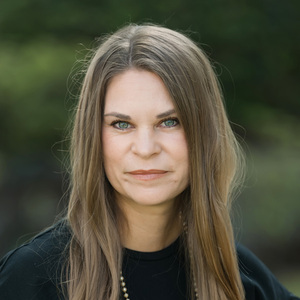
Dan Parris (’08) looked at the pilot and engineer moving frantically in the front seat of the plane. As one of them jerked the controls up once and then twice, Dan realized the plane wasn’t going up. Two power lines came into view. Then a bright flash. Dan shook violently as the plane crashed into the power lines and plummeted to the ground, hitting a building before landing upside down.
“I didn’t have enough time to think, ‘God, help me,’” said Dan. “Only, ‘I’m going to die.’”
After returning from a missions trip to Kenya in 2005, Dan made a commitment to do something about global poverty. Four years later, he found himself back in Kenya doing exactly that — making a film about the fight against poverty. But on just the second day of filming in Africa, tragedy struck.
Dan had convinced his friend Rob Lehr, an atheist who doesn’t think poverty is his responsibility, to accompany him and help him make the documentary, with a mission to connect those who need something to live for with those who just need something to live.
When the two set out for Africa this July from St. Louis, Mo., with friend and fellow crewmember David Peterka, they knew death was a possibility. They just didn’t expect that a plane crash would be the cause.
The trip was risky from the outset. The trio hitchhiked from St. Louis to New York, before flying to Europe, where they couch-surfed and lived on the streets for several weeks before heading to East Africa. The three spent their entire trip living on only $1.25 a day — the amount that 1.4 billion people living in “extreme poverty” survive on each day.
The team didn’t just set out to document themselves, but rather to document poverty, the way others view it and how it is lived. Featuring interviews with experts and people on the street, the documentary — titled “Give a Damn?” — sought to highlight possible solutions in the war on extreme poverty.
On their second day in Africa, on Aug. 1, Dan and Rob contracted a small Cessna 206 plane in Nairobi, Kenya, to shoot aerial footage of Kibera, one of the world’s largest slums. After circling the area a couple of times, the engine suddenly slowed and the plane began to descend.
“Five seconds prior to impact, Dan and I realized that the worst was happening, we were going down, and the only thing in front of us was a building,” Rob wrote in a blog post a few days after the crash. “All I remember is an explosion of white, followed by darkness and 5 seconds of what felt like being football tackled on every side.”

The pilot, Frank Toews, died on impact. Flight mechanic Ryan Williams succumbed to his injuries a few days after the crash.
Knocked unconscious, Dan didn’t move once the plane hit the ground. Rob escaped from the plane as it caught on fire. He woke Dan and helped him out of the plane, only to go back into the flames to help the unconscious Williams before being pulled back out of the wreckage himself.
The Kibera locals helped Rob and Dan into a car, which immediately sped away, swerving to avoid cars as the driver drove between lanes to rush them to the hospital. David Peterka and his brother, Tim, who met the trio in Africa to help with the film, rushed to the hospital as soon as they heard.
Dan had broken his collarbone and had a compression fracture at his L3 vertebrae, a paralytic ileus and several other minor injuries. Rob had six stitches on his head and burns on his legs, arms and back. In the midst of it all, they didn’t stop filming, videoing Dan in his hospital bed with a camera phone. The team knew this was ultimately part of the bigger story they would be telling.
The Peterka brothers continued filming throughout Africa after Dan and Rob returned to the United States to recover from their injuries. The brothers returned in December having completed photography for the film. Dan, still recovering, is now looking forward to the editing process.
“This is the part of the process that I’ve been waiting for for three years,” Dan said. “With a documentary, when you edit the story, you are really writing it.”
Despite facing ongoing health issues, Dan is persistent. He hopes to finish the film in time to enter the Sundance Film Festival in 2011.
“No matter how many ups and downs there are, there is always a consistent faith that this film is going to do something big,” he said. “I believe God is going to use it and do something incredible when all is said and done. Sometimes the day to day causes me to see the ugly part of that.”
Though the film’s message has already reached many ears through news articles and television interviews covering the crash, Dan is excited for the finished product to filter throughout the church and world.
Dan said he is eternally grateful to Biola University for the training he received in the cinema and media arts department as he developed the idea for the documentary.
“I couldn’t say enough about Biola,” he said. “Without some of the classes I took or the influences I had at Biola, I wouldn’t have known what I was doing or believed I could do it.”
For more on the documentary:
 Biola University
Biola University
.jpg)

